- Home
- Joel Goldman
Lou Mason Mystery - 01 - Motion to Kill Page 14
Lou Mason Mystery - 01 - Motion to Kill Read online
Page 14
Mason signaled the bartender for two cold bottles of Boulevard Beer. As he raised his to his lips, a thin stream splashed down his chin, splattering in his lap and washing away his reign as the king of cool. Hope and humility were restored when Kelly laughed and pressed her napkin against his thigh, soaking up the beer.
Over dinner, Kelly told him about growing up in the Ozarks, in Pope County. Her mother wasn’t ready for marriage or motherhood and walked out on her and her father when she was an infant. Her father was killed in a farming accident when she was sixteen. She lived with relatives until she went to college at Missouri State in Springfield. The FBI recruited her during her third year of law school at the University of Missouri. When she went to Washington, D.C., for her training, it was her first trip out of the state. Since then, she had seen the country’s underbelly in tours with the organized-crime strike force in New York, the gang strike force in Los Angeles, and the drug strike force in Chicago. Her last assignment was Kansas City’s financial fraud unit.
“What was your partner’s name?” Mason asked.
Kelly paused, looked at the bottom of her glass. “Nick. Nick Theonis.”
“Did you ever find out who killed him?”
Her eyes shone with a coldness he didn’t expect. “It was a drive-by hit. I saw the shooter’s face. His left eye was only a slit—like he’d been cut. His smile was the worst. He enjoyed it.”
“Could you identify him?”
“Jimmie Camaya. He’s from Chicago and started out there working for the Jamaicans as a drug courier and graduated to freelance killer. The mob likes him because he takes risks nobody else will. The FBI’s shrinks say he gets off on it.”
“Why hasn’t he been arrested?”
Kelly laughed. “You really are a Boy Scout, aren’t you, Counselor?”
“I just figured the good guys are supposed to win a few.”
“Yeah, well, we do win a few every now and then. But Camaya stays a step ahead. He goes underground after every hit, and no one sees him again until the next victim goes down.”
“So who hired Camaya to kill your partner?”
“That part’s just speculation. We were working in Chicago. After he was killed, we found out that Nick was taking bribes to tip off the mob about drug busts. Nobody was suspicious because we nailed enough of the lower-level dealers to keep the bureaucrats happy.”
“How’d you find out?”
“After his death, Gene McNamara searched Nick’s apartment and found records of the payoffs. He put me on administrative leave until he finished the investigation to make certain I was clean.”
“Gene McNamara? St. John’s lapdog?”
“We were all in Chicago together. St. John was appointed U.S. attorney right after Nick was killed. He wanted McNamara to be his chief investigator and McNamara wanted to keep his eye on me until I was cleared or indicted.”
“What did McNamara come up with?”
“Carlo D’lessandro runs the Chicago mob. Nick was on his payroll. Carlo must have gotten worried about Nick’s loyalty and had him hit. The bureau didn’t want to hang its dirty laundry out in public. So Nick was dead and Camaya disappeared. I quit the day McNamara gave me the report.”
“But you were exonerated.”
“McNamara said I was cleared because they couldn’t pin anything on me—not because he thought I was innocent. I’d have spent the rest of my career in Alaska.”
“Charming guy. Which reminds me. You never told me about your ride with St. John after Sullivan’s funeral.”
“Vintage St. John. He wanted to know what I knew about Sullivan’s death and reminded me in his usual subtle way that I had left under a cloud that could rain on me at any time. He promised me sunny skies if I kept him informed.”
“What did you tell him?”
“I suggested that he and McNamara try some anatomically impossible dance steps.”
“Did you suspect Nick was moonlighting?”
She played with her spoon, swirling the remnants of her coffee. “You’ve got to trust your partner completely or it doesn’t work. I’d invested an awful lot into the relationship. It bought a lot of loyalty, maybe the wrong kind.” The mist in her eyes said there were layers of meaning in her words.
“Were you in love with him?”
“Sometimes.”
“I don’t mind.”
“Do you always have to be so damn sensitive?”
“I’m just not jealous of the dead.”
She laughed and swept her hair back. “So much for sensitive. And I just thought you were trying to get in my pants!”
“How am I doing?”
“Well, rehashing old murders is an interesting approach. Does that normally work for you?”
“I never know what works for me. Might as well give it a run.”
CHAPTER THIRTY-SEVEN
They left, strolling past the outdoor sculptures, weaving in and out of the crowd that jammed the shop-filled streets. Mason remembered the first night he walked on the Plaza with a girl and tried to hold hands with her. They were sweaty-palmed teenagers whose fingers accidentally brushed together. He was so proud when she didn’t pull her hand away.
Kelly slipped her hand into his like they’d done it a thousand times before. Mason squeezed her hand and told her about life in his aunt Claire’s house. When he tried to make excuses for screwing up, Claire cut him off, insisting that life was about causes and not becauses. She spent more time feeding him values than vegetables, setting the bar high and expecting him to do backflips over it. He ended up with her house, great memories, and a lifetime supply of rules to remember.
“Ever been married?” Kelly asked.
Mason gave her the highlights on Kate and turned the questions back to her.
“Why did you go back home after you quit the bureau?”
“I wanted out of city life. I know that the country isn’t pure. But it seemed like all I ever saw in any city was the dirt that people did to each other. But with this case, it looks like my exit strategy has a few holes in it.”
They wandered to the eastern edge of the Plaza, hands intertwined, arms swaying slightly to their newfound rhythm. Sitting on the edge of a fountain, they watched as the mist fractured the fading sunlight into miniature rainbows. Last week’s heat had marched east, leaving the city host to a cool front. The air cleared as the temperature dropped, turning the evening into one that demanded sleeping under the stars.
Their life stories exhausted, they filled the space with a stream-of-consciousness zigzag through baseball, modern art, and celebrity look-alikes.
“So who do you look like?” she asked.
“When I was eighteen, older women said I looked like Dustin Hoffman. Fifteen years later, a girl at Baskin-Robbins told me I was a dead ringer for Tom Cruise. Go figure.”
“They saw what they wanted to see. Who do I remind you of?”
“No one I’ve ever known.”
“Now, there’s a good approach, Counselor.”
First kisses are promises. Hers was moist and soft. Second kisses are offers. His was plain. Third kisses are answers. Hers would have to wait.
“So who’s on your short list of suspects?” she asked, pulling back.
“You really know how to keep a guy’s interest.”
“I told you I was a tough interrogator. I was just softening you up.”
“Soft is not where I was headed.”
The fountain lost its magic, and they started walking again—west this time.
“Come on,” she said, consoling his hormones. “A deal is a deal. I paid for dinner and now you turn in all your friends.”
“Pretty funny for a cop. I don’t think Pamela did it. Sullivan wouldn’t let her inject him with anything—he wasn’t the type.”
“So who does that leave?”
“You mean other than the unnumbered women whom he exposed to AIDS?”
“I want the short list, not the long list.”
M
ason took a deep breath and jumped in. “Angela Molina says Sullivan was blackmailing her because she embezzled from the firm.”
“Angela qualifies.”
“Angela also says that Sullivan billed O’Malley half a million bucks for work that was never done—and O’Malley paid for it.”
“Add O’Malley to the list. Anyone else?”
Mason hesitated. Scott Daniel’s name was the next obvious one. He struggled to find a reason not to add it to the list. Loyalty was the only one. On almost any other day, that would have been reason enough. But Mason’s suspicion of Scott was growing like a bad seed. Mason hoped he was wrong.
“And Scott Daniels. He hated Sullivan and wants me to convince St. John that Sullivan was the only bad guy in the firm.”
“Was he?”
“I don’t know. Scott handled a series of transactions for O’Malley that we haven’t figured out yet. They may not pass the smell test.”
“With Cara Trent and Pamela Sullivan, that’s not such a short list. Do any of them have access to insulin?” Kelly asked.
“Pamela’s the only possibility I can think of, based on what you said about her volunteer work at the hospital.”
“There’s always money. What do you know about Sullivan’s estate?”
“Not much. Scott wrote the estate plan. He say’s Pamela’s in good shape, but I haven’t seen the will.”
“Where is it?”
“Probably in the safe at the office. I’ll check with Pamela and B.J. Moore. If they don’t object, you can come by tomorrow morning and I’ll go over it with you.”
“Tell me more about your review of O’Malley’s files.”
“O’Malley fired us today. Other than that, I can’t talk about it because it’s privileged.”
“Don’t give me that. This is a murder investigation.”
“Come on, Kelly. You went to law school. The privilege belongs to the client and lasts forever, even if he fires us.”
“Except your firm is a target of a criminal investigation. If your defense requires you to disclose client confidences, the privilege is waived. Talk to me, Counselor.”
“The firm hasn’t been charged with a crime yet. Besides, the waiver may only apply to that case and not yours.”
“Unless Sullivan’s murder is related to the grand jury’s investigation. There’s a long history of witnesses who die on the eve of testifying.”
“You’re fishing. Pamela was arrested this morning because the DA thinks she killed Sullivan because he exposed her to AIDS. Now you want me to violate my client’s confidences to prove he killed Sullivan to prevent him from testifying before the grand jury. Tell me what’s wrong with this picture, Sheriff?”
“I’ll tell you what’s wrong with it, Counselor. There’s an idiot named Lou Mason in the middle of it who thinks this is either just another game of cops and robbers or a law school hypothetical.”
Her interrogation lasted long enough to get them to the Tuscany restaurant. Jammin, a jazz bar, was in the basement, and Blues played there on Monday nights. They chose a table near the stage beneath a black painted ceiling ringed by a violet neon ribbon. People were packed around small tables and along the bar. A middle-aged, heavyset man was stuffed in a chair, his chin on his chest, his fingers wrapped around an empty wineglass. The man was either dead or asleep. They would find out when the waiter brought the check.
Blues was finishing his first set. The man knew Oscar Peterson—heard his voice and spoke his music with his fingers. Mason always liked watching him play. He could tell when Blues was playing for the crowd. The music was there but he wasn’t. When he played for himself, he moved from top to bottom. His shoe tapped and his face danced, all in time to the music. He’d look at his hands, eyes wide, eyebrows arched with surprise that they could do what they were doing—as if they had a life of their own. The sweet melancholy of “Autumn in New York” faded to appreciative applause. Blues brought three frosted long-necked bottles to their table.
“Man, you look like shit!” he said to Mason.
“Kelly, say hello to Wilson Bluestone. He gave up being a cop to play a mediocre piano.”
Blues looked at Mason as if he were measuring him for a pine box. “You’re the one who found Harlan Christenson? Newspaper said it was one of his partners but didn’t say which one. Figured it was you.”
He listened like the cop he used to be as Mason repeated the story, adding that they now knew that Sullivan had been murdered as well.
“You’ve got a real unhealthy practice. If I was you, I’d find another place to hang your shingle.”
“I can’t prove anything, but I’ve got to believe the murders are connected.”
“Let the cops figure it out.”
“She doesn’t buy it,” he said, nodding at Kelly.
“So what? I said let the cops figure it out.”
“Sheriff, show Blues your badge and he’ll be more polite.”
Kelly smiled and showed him her badge—and her gun.
“Damn! What are you doing out with a cop instead of a nice Jewish girl?”
“Is this guy really a friend of yours?” Kelly asked.
“Yeah. He’s just intimidated by heavily armed women.”
“Well, Sheriff, do you think it’s just bad luck that Lou’s partners get whacked on back-to-back Sundays?”
“So far, that’s all there is to connect them. It would help if Lou would tell me what his clients have to do with this.”
“He’s not going to tell you. It’s privileged, and even though you’ve got his tongue dragging next to his shoes, you’re on the other side.”
“That’s what he says—that it’s privileged, I mean.”
“Don’t worry. He’ll tell me, and I’ll tell you.”
“Why will he tell you?”
“Because I’m watching his back, and I can’t do that if he doesn’t tell me.”
“But why will you tell me?”
“Because I’m likely to need help.”
Mason was about to argue with both of them, when he realized that Blues was right. He would tell Blues. Blues would tell her, and Mason was in heat.
“So you’re the one who searched the office for more bugs,” she said to Blues as Mason drank his beer in silence and listened to them work the case.
CHAPTER THIRTY-EIGHT
By Tuesday morning, the thirty-first floor had become an obstacle course of copy machines, banker’s boxes, and stacks of files. Phil Rosa was asleep in the conference room, stretched between two chairs, snoring softly under a Pizza Hut box planted like a teepee over his face. Mason picked up the box, waving away Phil’s pepperoni morning breath, the fresh air enough to wake him.
“Any survivors, Phil?”
“Barely. Two of our copiers went down after midnight. We ran out of paper at three. Maggie and I tried to organize the leftovers. Everyone else went home.”
“How far did you get?”
“About two-thirds of the way through. We’ll have to send the rest out to be copied if we’re going to get the files delivered to O’Malley today.”
“I don’t like it, but we don’t have a choice.”
“Well, well, the prodigal partner returns. I hope you can find some new assignment to keep us challenged today,” Diane Farrell said as she sauntered in.
“Diane, I’m glad you’re here. Phil—take the day off. Diane will finish up.”
“And the horse you rode in on, boss,” she said.
“I didn’t know you were an animal lover, Diane,” Mason said on his way out.
Sandra stood him up for their seven o’clock meeting. He hoped that meant they were even. At nine, Mason’s secretary delivered a memo announcing that the partners’ meeting had been moved to one thirty. Scott’s secretary answered Mason’s call to his office and told him that Scott wouldn’t be in until noon.
“Do you know where he is?”
“No, sir.”
“Can you check with the other partners?”<
br />
“Sorry, Mr. Mason. You’re the only partner here.”
He should have seen it coming then, but he was too busy to pay attention to the firm’s radio traffic and troop movements.
Kelly was a welcome sight when she walked into his office. He knew when he had a crush on someone. In high school, he called it being in deep like. In his twenties, he called it magic. Now in his midthirties, he called it dumb luck and hoped it would last long enough to fill the crater Kate left.
“Wait here,” Mason told her, motioning to a small, round conference table. “Pamela and B.J. gave me permission to show you Sullivan’s will. I’ll be right back.”
“Your office is too masculine,” she told him when he returned. “You need some flowers.”
“Since when is masculine a bad thing?”
“It’s almost my favorite thing,” she answered. “But you need more hormonal balance.”
“I’ll rent you space,” he said, pulling his chair next to hers.
“The will was signed on August 31, 1997,” Kelly noted as she began reading.
“There’s a trust agreement that runs twenty-five pages. Fortunately, Scott included a summary.”
“What’s the bottom line?”
“Sullivan’s estate is worth about twenty million dollars. Pamela gets half, and half goes to charity.”
“Unfortunately for Pamela, ten million dollars is a hell of a motive for murder.”
Mason started to put the will and trust back into the file when a sealed envelope he hadn’t noticed before slipped out. Kelly grabbed it and tore it open before he could claim another privilege.
“I don’t get it,” she said as she handed it to him.
Mason studied it for a few minutes. “I don’t get it either. This is a codicil, an amendment revoking his will.”
“So he died without a will?”
“Which makes no sense. He might change his will. But he’d never revoke it. That would cost his estate a fortune in taxes. He’d spent his entire career making sure his clients avoided taxes. I wonder if Scott knew about this.”
“What happens to the estate now?”
“In Kansas, if you die without a will, the entire estate, after taxes, goes to your heirs. Your spouse gets one-half and your kids share the rest equally. Pamela and Sullivan didn’t have any children, so she gets it all.”

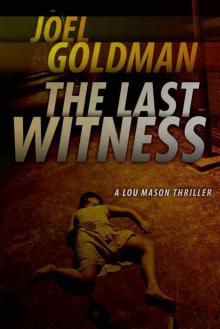 The last witness lm-2
The last witness lm-2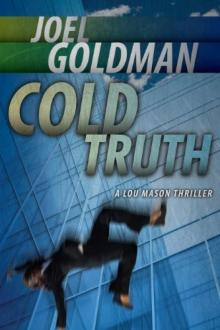 Cold Truth
Cold Truth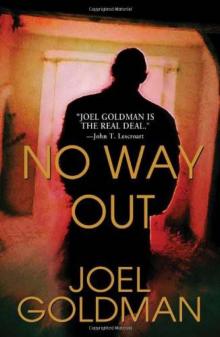 No Way Out (2010)
No Way Out (2010)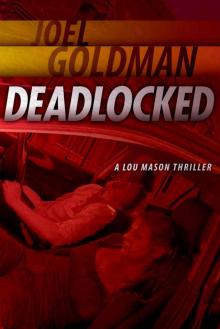 Deadlocked (Lou Mason Thrillers)
Deadlocked (Lou Mason Thrillers)![[Lou Mason 01.0] Motion to Kill Read online](http://i1.bookreadfree.com/i1/03/24/lou_mason_01_0_motion_to_kill_preview.jpg) [Lou Mason 01.0] Motion to Kill
[Lou Mason 01.0] Motion to Kill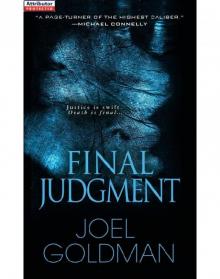 Final Judgment
Final Judgment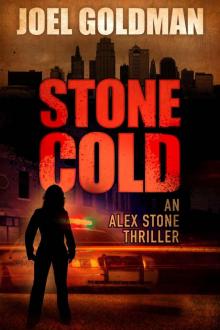 Stone Cold
Stone Cold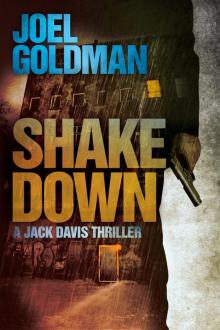 Shakedown
Shakedown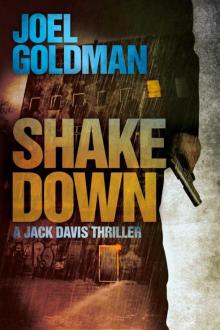 Shakedown jd-1
Shakedown jd-1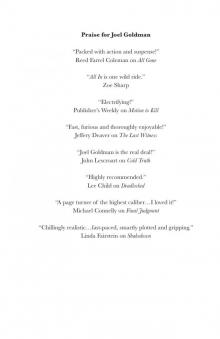 All Gone
All Gone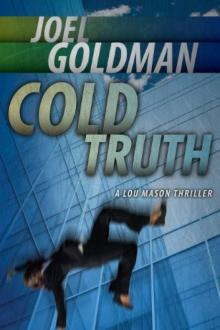 Cold truth lm-3
Cold truth lm-3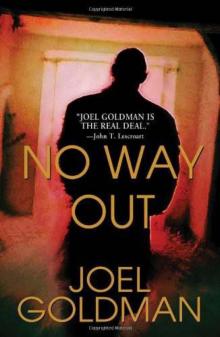 No way out jd-2
No way out jd-2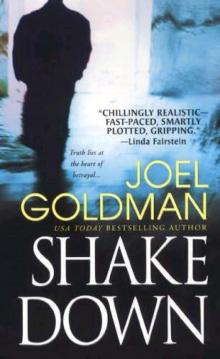 Jack Davis Mystery - 01 - Shakedown
Jack Davis Mystery - 01 - Shakedown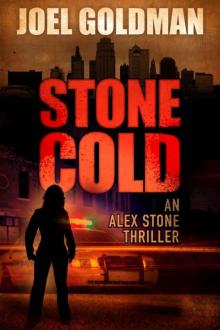 Stone Cold as-1
Stone Cold as-1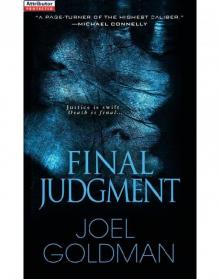 Final judgment lm-5
Final judgment lm-5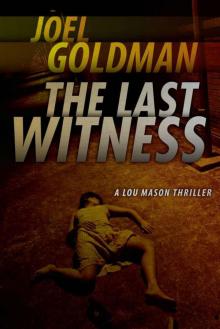 Lou Mason Mystery - 02 - The Last Witness
Lou Mason Mystery - 02 - The Last Witness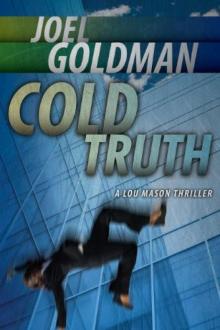 Lou Mason Mystery 03-Cold Truth
Lou Mason Mystery 03-Cold Truth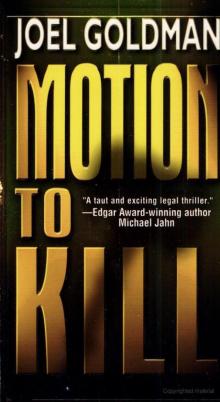 Motion to Kill
Motion to Kill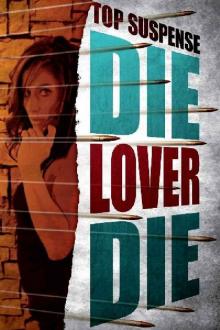 Die, Lover, Die!
Die, Lover, Die!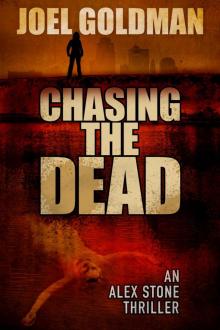 Chasing The Dead (An Alex Stone Thriller)
Chasing The Dead (An Alex Stone Thriller)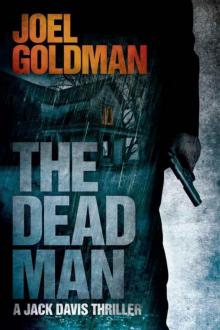 The Dead Man
The Dead Man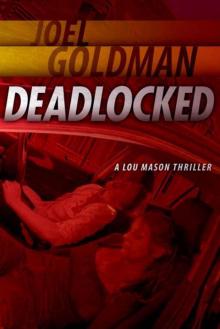 Deadlocked lm-4
Deadlocked lm-4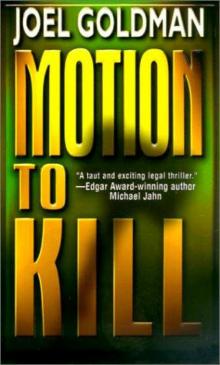 Lou Mason Mystery - 01 - Motion to Kill
Lou Mason Mystery - 01 - Motion to Kill Die, lover, die
Die, lover, die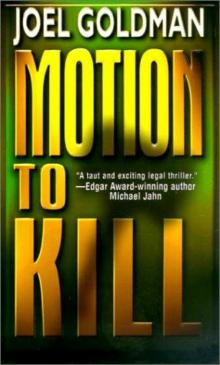 Motion to Kill lm-1
Motion to Kill lm-1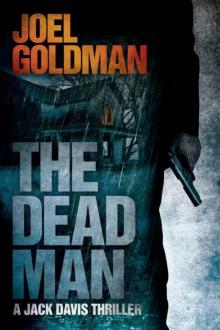 The Dead Man jd-3
The Dead Man jd-3